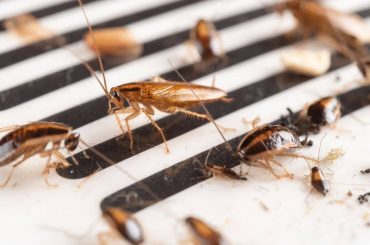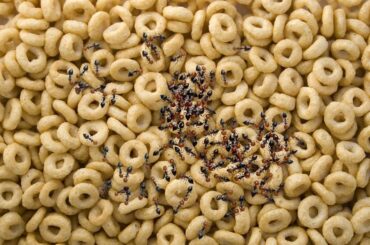Do you know How to get rid of worms after rain? Yes I do. In this article I am going to describe how I got rid of worms using several methods. Before going into getting rid of parts I like to describe why they come out after rain.

Why do worms come out when it rains?
You may commonly spot the worms coming up in your sidewalks, puddles or even on the street right after a rainfall. You may sometimes even notice them in your pavements. However, when we further elaborate on this, they would come out when it’s raining simply as they can’t respire underwater.
Once there is a heavy rainfall, earthworms would submerge and consequently they would not be able to respirate. Usually, the earthworms use their skin for respiration. Hence, they find it difficult to breathe when it is raining.
As you may know, humans may drown once their lungs fill with water. However, worms will not go through this as they don’t have lungs. However, there are worms which can still survive for about two weeks’ time despite being submerged in water. So, if you spot any worms on sideways and streets , that means they are struggling to get Oxygen for their respiration.
Further there are some people think that worms come out from their places as they presume the sound of the rain drops as predators. So, they would simply flee their spaces to protect themselves.
How to get rid of worms after rain
Keep your soil dry
If we consider getting rid of the worms after rain as a whole, the first thing you need to do is to keep the soil dry as much as you can. To do that you need to remove the excess moisture as simply earthworms will struggle to survive in dry soil.
Further you need to ensure that you properly maintain your lawn and remove overly grown grass. Refrain from applying Ammonia as they would cause acidity in the soil mix.
Thick grass cover
Once you keep the grass thick, it would keep the worms away from the pathways as well as from the driveways. Hence refrain from cutting the thick grass. You can let them grow a little higher.
Clean the lawn
Next you need to rake and sweep to get rid of the worms. That is simply because the worms which cannot go back to the ground will perish since they cannot stand the intense sunrise. In fact, once they expose themselves to intense sunlight, it will make them dehydrated. In that case, if you spot any dead worms, you need to take them away.
Having said that if the worm’s infestation is severe there, you may even consider leaving there itself so that it would be beneficial in fertilizing the soil there. In fact, the rotting worms’ corpses would act as a Nitrogen source, and it will keep the grass healthy.
Clean the house
You may also come across the worms in dark areas and in any other unused items. So, you need to get rid of those and vacuum them. Next, don’t forget to mop the floor with soapy water. However, before you place anything you need to let them dry.
If you spot any worms in a pool , you need to scoop them away by using a large, meshed sieve. Next you need to vacuum them and disinfect the places too.

Salt to repel
You may use salt to repel and kill the worms which come across your pavement also. You could just take some salt into your hands and then sprinkle it on the worms. In fact, it will kill the worms there itself. You may also spread salt on your driveways and pavements so that it would deter them.
Worms are usually moist, and salt will dehydrate and kill them. Once your salt gets in contact with the worms , it will move out the water from the cells and make them dry. Besides, you can also spray the salty water on the pavement.
Fix the holes in walls and pipes
There could be worms which will invade your house after a rain. They would in fact come in search of warmth. However, they would find it difficult to cope up with the colder conditions outside. They would use the gaps under the doors to sneak to your house. Besides, they may crawl through the walls and sneak through a window to come inside.
When they invade your house, they prefer to stay under damp areas such as under the sink and the drains. They would tend to occupy these as those are high in humidity levels. Further there could be some worms which try to invade your bedrooms as they go in search of warmth.
To get rid of the worms in your house, you need to first fix the holes you find in the walls and pipes in these areas. Then you need to always try to keep the bathrooms dry whenever possible. Do not leave stagnant water to be indoors. Further mop the floor with some detergents so that you can repel them.
There are some people who believe superstitiously that worms fall from the sky. However, it is just a myth and it cannot be true at all. It is literally worms have to leave their places due to excess moisture and lack of oxygen.
You may mainly come across worms such as millipedes and earthworms in your houses. It is vital that you clean them properly as they could contain a lot of predators.
What kind of worms come out after rain?
However, if there are worms who would perish due to moisture, they would come out from their space to the outer surface. Besides if they assume rain as predators, they would also tend to flee their usual place.
Worms such as Juvenile worms, red worms and adult nightcrawlers could be considered as worms which come out after rain. Out of this you can commonly spot, Juvenile worms mostly during heavy rains. Further, depending on the rainfall levels and on the oxygen levels you could spot different kinds of worms coming out too.
You could spot the tiny worms coming out first as they would find it difficult to cope up with the decreasing Oxygen levels at first. That is because they have a small surface when you compare them with the larger worms. There are different kinds of worms living in soil as they would vary depending on the behavioral characteristics.
There could be some worms which live above the ground where there could be some who live in sandy areas, for those, a little rain fall will force them to come out. The worms which live much deeper in the soil will only come once they are extremely soaked up and flooded.
Having said that, they will tend to go back to where they used to live once they fulfill their oxygen requirement and in order to protect themselves from predators such as birds and chickens. Furthermore, there are worms which depend on little oxygen levels, and they will tend to come out much faster than the rest of the worms.
What happens to worms after rain?
Once after a downfall of a heavy rain, the burrows as well as the soil pores will fill with water. Further the diffusion of oxygen is much slower in water when you compare it with air. So, simply worms will struggle to fulfill their oxygen requirements after a heavy rainfall. Ultimately, they would come to outer space for the respiration activity.
Can worms freeze and come back to life?
As per experts, worms can freeze completely and come back to life. But it is highly debatable.
What happens to earthworms in a drought?
Earthworms can survive a drought. Literally they would go into estivation during drought time and survive there. In fact they can survive up to three weeks. Despite the fact that they can survive in the dry soil, they would be very much active like they used to be. Further if there is a severe drought for extended periods they would most probably perish. Earthworms do not usually grow in the deserts.
Read Next : How To Get Rid Of Ants After Rain | Quick Methods |





